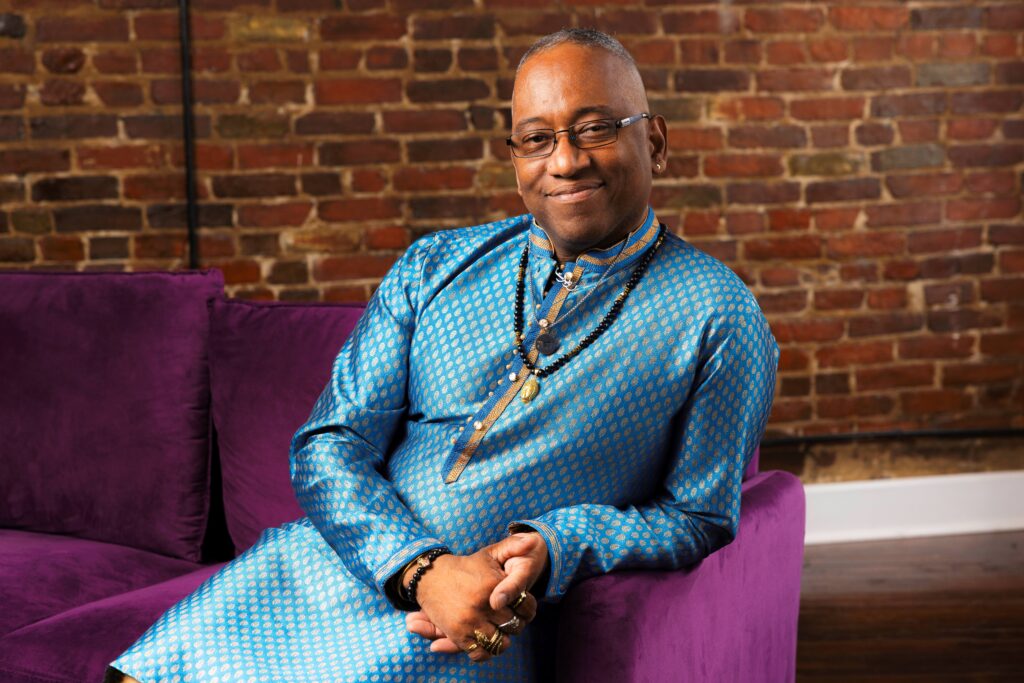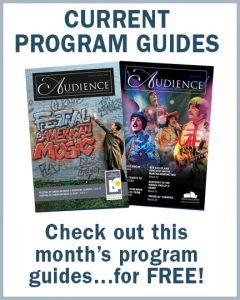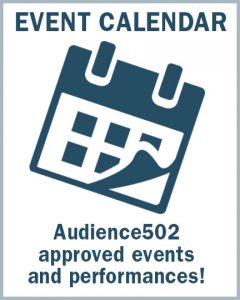Robert Barry Fleming – Executive Artistic Director
Actors Theatre of Louisville
By G. Douglas Dreisbach
Actors Theatre of Louisville has been a longstanding pillar for theater in Louisville since 1964. Located in the heart of downtown, Actors is known for its innovative productions and commitment to new works, garnering national attention and awards for its various works. It continues to be a vital hub for contemporary American theater today. We caught up with the theater’s Executive Artistic Director, Robert Barry Fleming, to hear more about his outlook on the arts community, his roles and responsibilities, biggest accomplishments, and more.
Listen to the full interview below.
Doug Dreisbach: Thank you for your time, it’s great to catch up! So, you have been at Actors Theatre for six years now. How has your time with the group been so far?
Robert Barry Fleming: It’s been fantastic and thrilling to be engaged with the artists and creating art, telling stories. It has been a whirlwind of a couple years with the pandemic and the racial reckoning and the continued fluidity of the nature of the landscape in arts and particularly theater. But, it has been a wonderful adventure, and I am thrilled that I get the privilege to serve in this capacity as a leader.
DD: Some big news coming out recently was the $1 million grant from the Mellon Foundation for transformative artistic leadership in American theater. Can you elaborate on that and what it means for Actors Theater and the community?
RBF: Our mission is unlocking the potential of the community and enriching the quality of life by engaging people in theater that reflects the wonder, and reflects our times. There is probably not been a moment in American history that’s been more wondrous and complex than what we’ve experienced over the last six years, so what that’s really led us to do in the arts and cultural organizations is to really lean into the social enterprise part of what it means to be an arts and cultural organization. We find ways to serve our community, create the most inclusive society we can, a place of true belonging, and really do that strategically, with experiences that reflect a deep civic commitment to the social good and the health and wellness of all the people that we serve. I think that caught the attention of the Mellon Foundation.
Our space is interdisciplinary and a place that tells stories, and we have competing narratives and competing stories about who we are and where we’re going. That makes for a very potentially rich democracy that is full of richness. We try to keep uplifting those stories that amplify voices of many different perspectives and make sure those who have been historically excluded do have a space in which their stories are centered and that we can connect through difference. We are striving to create this welcoming space of belonging for all, and I think that is something that was inspiring to the Mellon Foundation, and they wanted to see that supported.
DD: As the Executive Artistic Director, what are some of your day-to-day roles and responsibilities?
RBF: Part of my role is framing the narrative around who and what we’re doing and making that legible and inspiring to those who feel aligned with what we’re doing. Not everybody will feel aligned with working in a deeply transparent and accountable way. That is antithetical to some parts of how American society works. It’s usually “keep it quiet” and like, “Don’t say anything. Don’t upset anything.” I think, frankly, there’s not a lot of data that shows that that is a sustainable practice for humankind. We do, however, seem to do better when we show up as our authentic selves and continue to be in the space of learning, where you can make mistakes, be accountable for them, and move forward. Be in a space of curiosity. Don’t assume that you know everything. Learn how to defer with humility and continue to be one who learns. Continue to tell the truth, rather than lie. Some people think that’s for suckers. Some people recognize that as a natural way that you sustain authentic intimacy in your emotional relationships and can be accountable on multiple levels, whether that’s economic, cultural, and your stewardship.
Finding and creating stories that are constantly investigating these things is such a rich and joyful way to live my life, and I can’t complain about the amount of joy I have getting to do this work, day after day.
DD: What is the process to determine what programming is going to be on your stages and what messages are important to portray on the stages?
RBF: I was always taught that theater is the place where you speak the unspeakable. Sometimes, you just go into those spaces that folks are a little hesitant to step in. It’s like, “Oh, if we open that Pandora’s box, who knows where we’re going to end up.” It’s like, that’s clearly the box, and you kind of want to open it up and see if you can explore that.
Certainly, in a racialized, capitalistic society, race being at the center of many of those conversations, gender, in terms of who has privilege, who does not, who gets to make the decisions, who gets to participate in the process, who’s in the in-group and who’s in the out-group — those are the kinds of things that are existentially true about humankind, and when you get to focus those within your own country and your own region, and then kind of keep narrowing that into what the Kentuckiana has in common with the global community in Beirut or in Brazil or any other place around the globe, that’s when the conversations get really interesting.
We look for stories that foreground local acknowledgement of our values and our importance. When you know people are struggling with a sense of both of those things, you want to kind of lead with that conversation. You want to create more consciousness and awareness around the things that people are pondering, so you look at the research and say, “What is on people’s minds? What are we discovering in the quiet wee hours when folks are alone, occupying those spaces?” Great plays tend to do that with a great sense of regularity, and then have the rich, wonderful group conversations that you can have around that content and around that experience, shared in a space that’s very much an ancient ritual, where you gather in the dark and you share your stories. We’ve been doing it since we were in the cave, and we’ll do it until we are no longer on the planet. We’ll always tell stories, and just being a part of that long legacy is such a privilege. It’s such a gift. It’s such a joyous thing.
DD: In your perspective, where does Louisville stack up in the theater and arts world? Do other cities around the country and world look to us for advice, guidance, and ideas?
RF: There are many people who are looking at us. The real question is, “Do we look at us?” Or are we externally focused? Are we internally focused on the things that really nurture how Louisville and Greater Louisville, Kentuckiana, our country, can live up to its potential? And in what ways have we continually failed to miss the opportunity to do so?
A lot of people want to pit this very rich, creative community against each other. We’re too busy enjoying each other and supporting our work to fall prey to that kind of scarcity mentality. We believe in abundance. Louisville is full of extraordinary talent, as is our great country, and we love having guest artists from New York and across the country, artists from other countries who are collaborating with us, as much as we do our local folks, because we’re a place of belonging for people across the globe. There are so many of us who are committed to telling very diverse stories that resonate around the globe.
DD: What are you most excited about for the upcoming season?
RF: The whole season, because that’s the thing that’s great about having ongoing programming, that you get to continue to explore the human condition, no matter what you’re doing. We’ve got programming that is still on our digital platform, with the Ali Summit to Romeo and Juliet: Louisville 2020, so you can still see that work. And the upcoming works with The Importance of Being Earnest, with Kentucky Shakespeare and the fantastic play Flex, that was derailed by the pandemic. We’ll continue to have new work, young people with our New Voices bilingual initiative. We’ve got a wonderful partnership with Metro doing the language café, so you can, through storytelling, learn French, Spanish, Vietnamese, or Swahili. In the spring, we are excited about a new educational initiative that will be a welcoming place where, rather than separating, again, in our differences, we’ll be bringing all our differences together for a lively engagement of different cultures. We’ve got this fantastic immigrant population that is so full, so rich, and it’s just adding to the magnificence of what greater Louisville is and continuing to evolve the story. We’re just thrilled to be a part of all of that.
For more information and upcoming shows at Actors Theatre of Louisville, visit ActorsTheatre.org.
CLICK HERE for more Audience Spotlights with the Leaders of Louisville’s Arts Groups.






